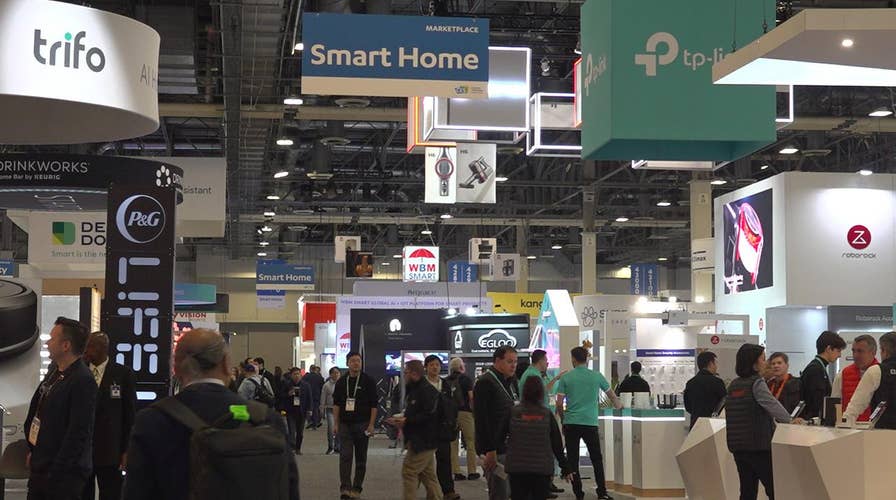CES 2020: New smart home devices may help you live longer
Thousands of new products were unveiled at the annual Consumer Electronics Show in Las Vegas and some may help keep loved ones living longer and safer. From ceilings that call 9-1-1 during a stroke to virtual caregivers checking vital signs and ensuring medications are taken, these devices track all ages 24/7. However, they can also present privacy concerns and need to secure your personal data.
LAS VEGAS - 2020 is kicking off with some of the world's latest and greatest technological advancements at the annual Consumer Electronics Show in Las Vegas.
Some 4,500 exhibiting companies descended upon the famous strip for a week packed full of presentations, demonstrations, and expos.
“You could walk these halls for all four days and not see everything,” said Russell Holly, managing editor with Future Labs, told Fox News.
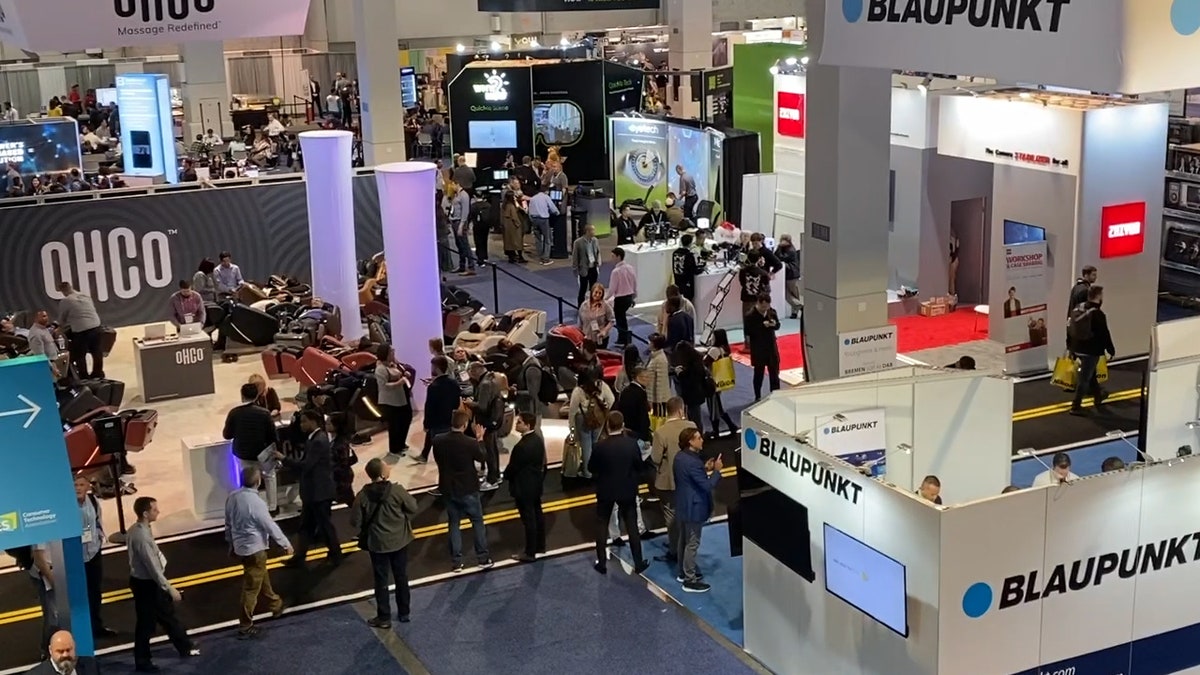
CES draws large crowds to Las Vegas Convention Center. (Stephanie Bennett/Fox News)
Smart home devices are one of the most popular sections at CES. From wearable alarm clocks that sense sleep apnea, to ceilings that call an ambulance during a stroke, these are just a few of the devices shown this year. Companies say it’s to help keep people safe in their homes.
IVANKA TRUMP DELIVERS CES KEYNOTE, TOUTS INNOVATION, JOB GROWTH
One of the biggest trends at CES is devices that can detect medical dangers through a series of sensors around the home. That’s the idea behind Israeli based company Vayyar.
“The idea is to have something that the person doesn’t need to wear, so it just sits over there monitoring the house … we have a 3D imaging sensor that can look at you without actually having your picture so basically we can track people if they go around the house if they fall down, if they sit, if they lie down in bed sleeping. We can monitor day-to -day kind of living and tell you things about yourself or alert someone if you fell,” Raviv Melamed, CEO of Israeli based tech company Vayyar, told Fox News.
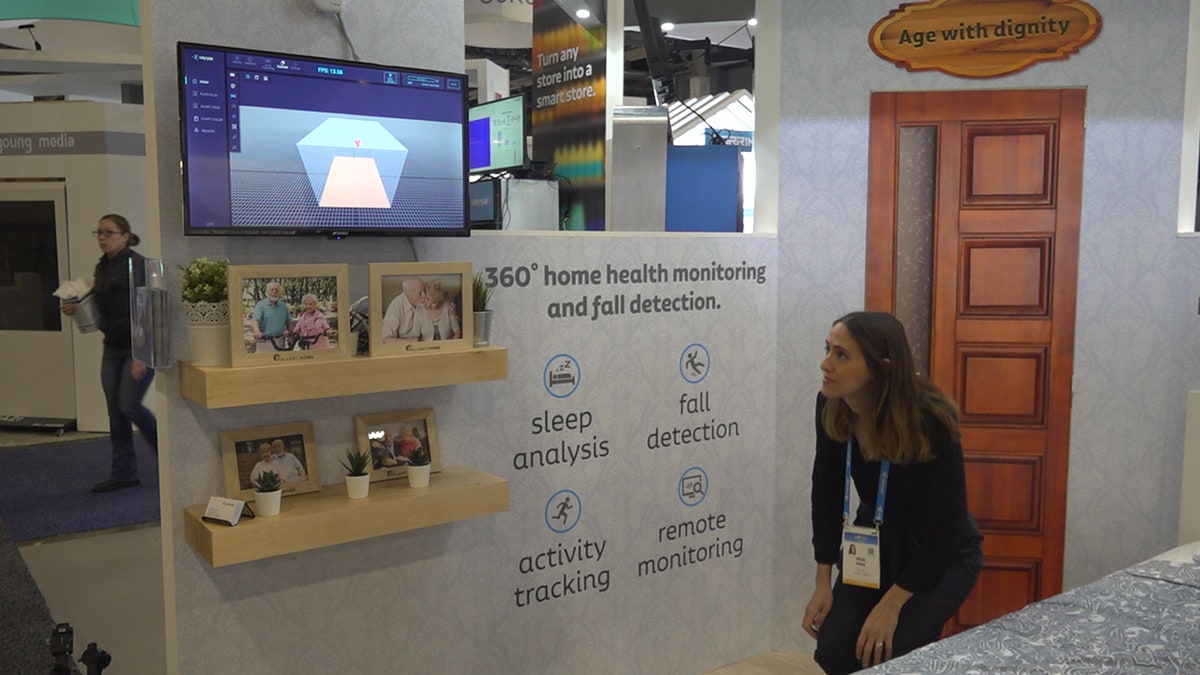
Vayyar demonstrating their motion sensor product called Walabot. (Stephanie Bennett/Fox News)
Vayyar revealed Walabot at this year at CES, which can track movements in the home from people of all ages. It can even detect a fall. Their sensors also detect if a child was left in a hot car, which would then notify you through their app.
CES: HERE ARE THE GADGETS YOU WILL BE USING IN 2020
“We see through things so if someone falls in the bath we can alert the caregiver,” said Melamed.
Then there’s Addison Care, the virtual caregiver.
“She is a 3D virtual smart health home virtual caregiver, manages behavioral health, chronic disease, supports caregivers and even takes care of child patients,” Anthony Dohrmann, CEO of Electronic Caregiver, told Fox News.
SAMSUNG SHOWS OFF 'SELFIETYPE,' AN INVISIBLE KEYBOARD FOR YOUR PHONE
Addison is voice-driven, 24/7, based on a tablet and can call human caregivers or family members if a problem is detected.
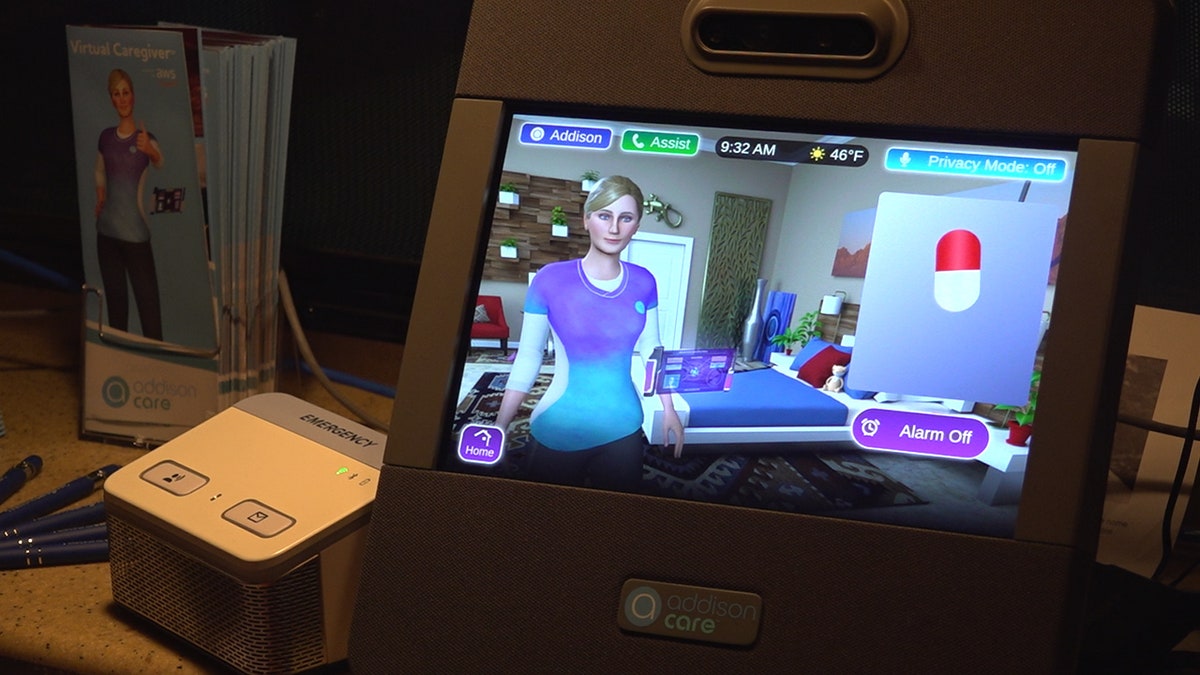
“So she can though that visual sensor verify you're taking medications, see how you’re feeling, look for signs of distress, if you're doubled over in pain, she can see if your fall risk increases, she can see how you're adjusting to a prosthetic or a new rehab exercise, she can even demo a rehab exercise, verify you're doing it with that visual sensor and monitor your progress as you improve and keep providers informed,” said Dohrmann.
Why have one product when you can have a whole house? That’s the thought process behind Sekisui House’s latest invention. Based in Japan, the company's new Platform House HED-Net uses contactless sensors to improve health, wellness and happiness in a resident’s home. The company says that the system can sense strokes and heart movements.
“Let’s think of a bedroom because what we use for sensing is contact-less, it is not under a mattress, not like a watch or a pad put onto the heart (chest). Instead, we install a sensor recessed onto ceiling. By monitoring vital data such as heart rate, aspiration rate and blood pressure and using our proprietary algorithm, we detect onset of acute diseases,” Sekisui House President Yoshihiro Nakai told Fox News.
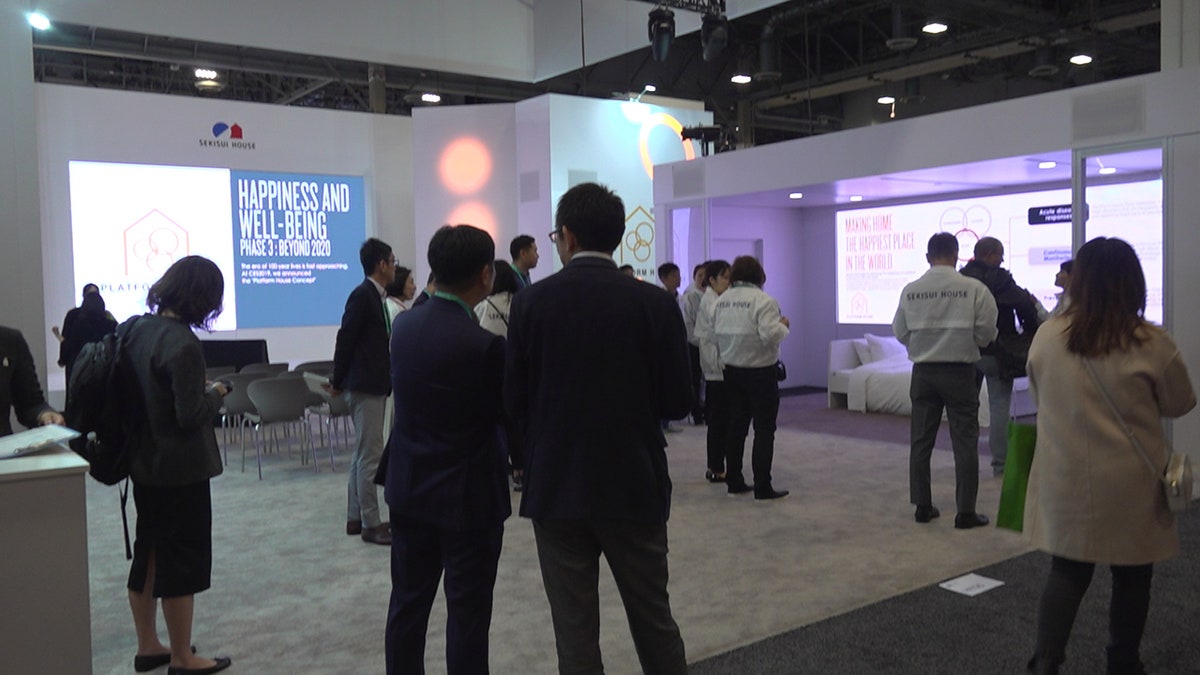
Sekisui House booth at Sands expo center at CES 2020. (Stephanie Bennett/Fox News)
Most of these products are either already on the market or will be soon. These devices may seem cool but can also present a lot of privacy issues.
“The security and privacy risks for any of this stuff really just depends on the companies and being able to ask very clearly what are you doing with my data …a lot of the stuff that we are seeing here is going end up having a lot of those same problems where the first generation is going to be a little on the expensive side,” said Holly.
Almost all the companies diving into the medical field had one goal in mind. They say they hope their devices can keep people safe and healthy.
CLICK HERE FOR THE FOX NEWS APP
“The positive is autonomy, giving an elderly person or a less advantaged person the ability to, you know, be on their own and know that if something happens there’s support for them - it’s definitely a huge thing that a lot of these companies will be talking about over the course of the next week," Holly told Fox News. "The downside of that is it not being super easy to use or it being just kind of a little creepy.”
